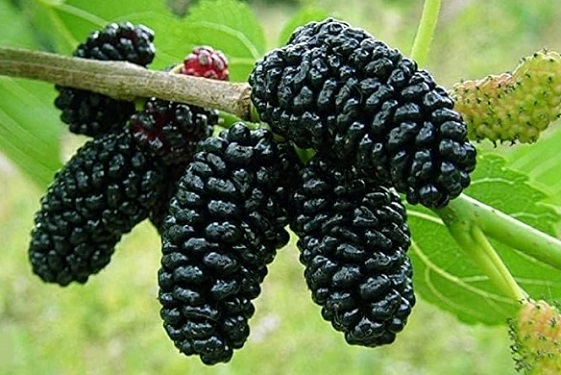Nikhil Prasad Fact checked by:Thailand Medical News Team Aug 30, 2025 5 months, 3 weeks, 5 days, 25 minutes ago
Medical News: Natural Extract Offers New Hope
Alzheimer’s disease is one of the most devastating brain disorders, slowly robbing people of memory and independence. With limited treatments available and most drugs only providing temporary relief, researchers continue searching for safer and more effective options. A new study by scientists from Huazhong Agricultural University, Wuhan, China, and the Institute of Translational Medicine and Fuxi Laboratory, Zhoukou Normal University, China, has shed light on a natural compound called mulberroside A, extracted from the mulberry plant. This
Medical News report highlights the significant findings showing how this phytochemical compound may slow or even prevent the progression of Alzheimer’s disease.
 Phytochemical From Mulberry Shows Promise Against Alzheimer Disease
Protecting Brain Function
Phytochemical From Mulberry Shows Promise Against Alzheimer Disease
Protecting Brain Function
The team tested mulberroside A on mice with Alzheimer-like symptoms and on human brain cells. They discovered that the compound not only improved memory but also protected nerve cells from damage. It worked by increasing levels of acetylcholine, a chemical messenger essential for learning and memory, while blocking enzymes that normally break it down. The compound also boosted key protective brain proteins known as BDNF and CREB, which help keep neurons healthy.
Blocking Toxic Proteins
Another major finding was that mulberroside A reduced two toxic hallmarks of Alzheimer’s—amyloid plaques and tau tangles. These substances are known to clog the brain and kill neurons over time. By lowering the activity of harmful enzymes that promote plaque formation and instead pushing the brain toward healthier processing pathways, the compound decreased the buildup of amyloid-beta proteins. At the same time, it stopped tau proteins from twisting into destructive tangles.
Powerful Anti-Stress Effects
The research also revealed that mulberroside A acts as a strong antioxidant, lowering damaging molecules such as ROS (reactive oxygen species) and MDA (malondialdehyde) that normally worsen brain cell injury. In both animal and cell studies, the treatment reduced brain inflammation and oxidative stress, which are closely linked to Alzheimer’s progression.
A Multi-Target Defense
What makes mulberroside A especially promising is that it works on several disease pathways at once. Most current Alzheimer’s drugs focus on only one target, but this compound restores cholinergic balance, fights oxidative damage, reduces toxic protein buildup, and activates protective signaling pathways such as PI3K/AKT, which in turn helps neurons survive longer.
Looking Ahead
While the results are encouraging, the researchers caution that the work is still at the experimental stage. More studies, including human clinical trials, will be needed before mulberroside A can be developed into a treatment. However, the findings highlight the potential of natural compounds like mu
lberry extracts to provide safe and effective ways to fight complex diseases such as Alzheimer’s.
The study findings were published in the peer reviewed journal: Biology.
https://www.mdpi.com/2079-7737/14/9/1114
For the latest on Alzheimer Disease, keep on logging to Thailand
Medical News
Read Also:
https://www.thailandmedical.news/news/thailand-doctors-discover-neuroprotective-power-of-indian-trumpet-tree-against-alzheimer-s-cell-damage
https://www.thailandmedical.news/news/pomegranate-seed-oil-shows-promise-in-slowing-down-memory-loss-in-early-alzheimer-patients
https://www.thailandmedical.news/news/phytochemicals-from-acanthopanax-senticosus-plant-found-to-block-brain-inflammation-and-cognitive-decline-in-alzheimer
https://www.thailandmedical.news/articles/alzheimer,-dementia-
